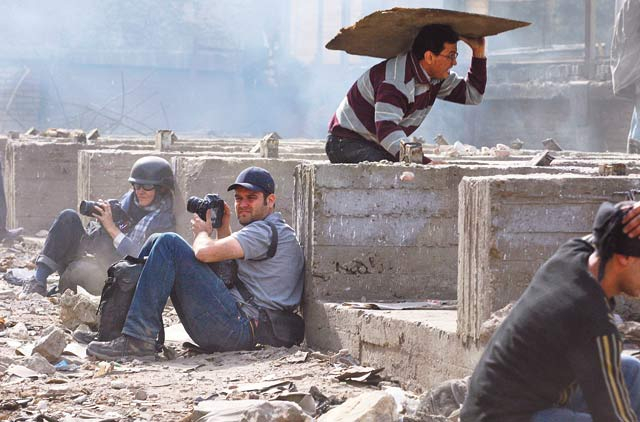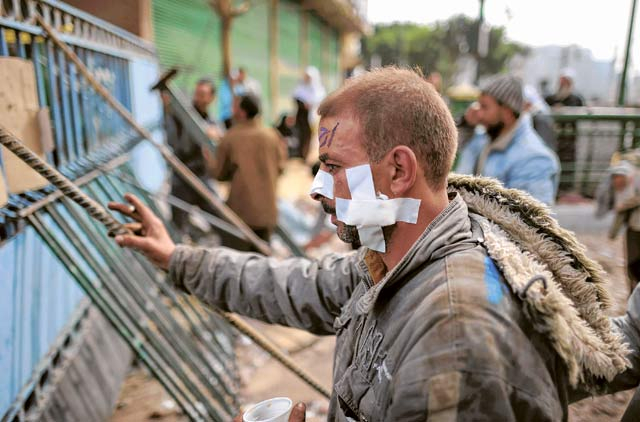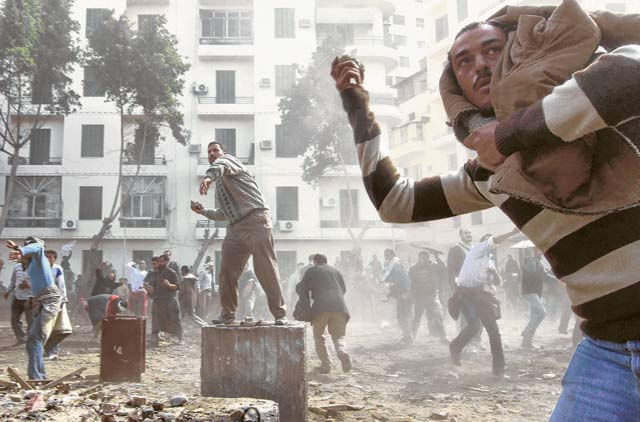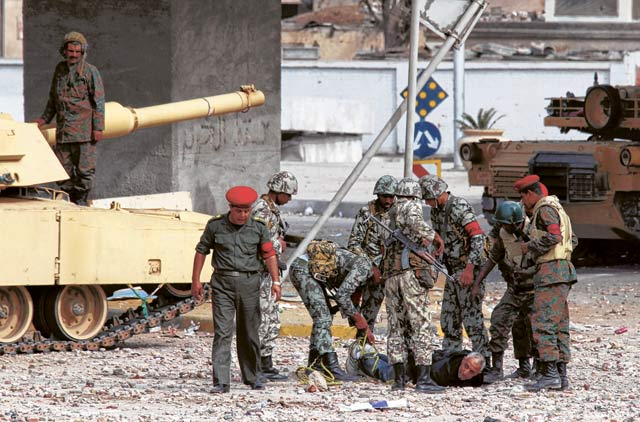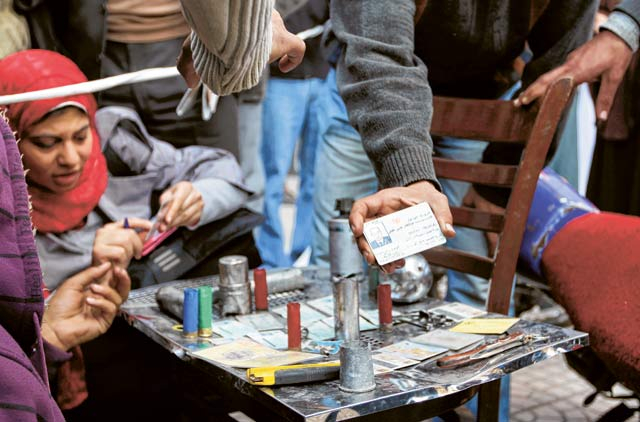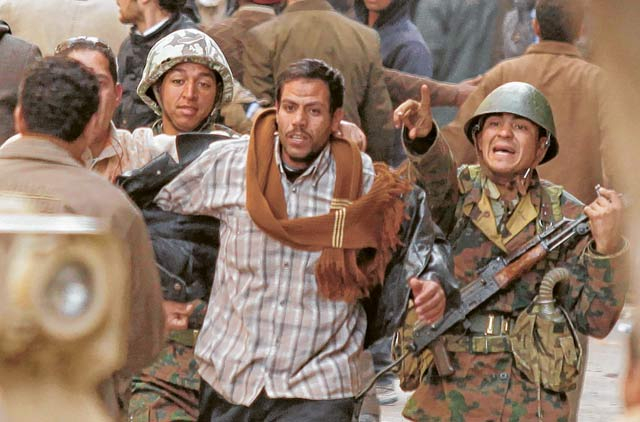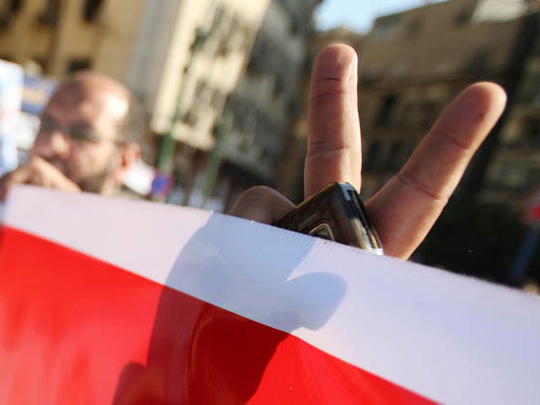
Cairo: Egypt’s embattled government announced steps on Thursday aimed at defusing a bloody revolt, as protesters battled pro-regime elements for control of Cairo’s Tahrir Square and spurned an offer to talk.
Fighting between protesters and government loyalists raged into a second night, with an unidentified foreigner beaten to death in the square and a hypermarket torched in a Cairo suburb.
Vice-President Omar Sulaiman in a lengthy address on state television urged protesters to leave Tahrir Square, slamming their demands for the President’s ouster as a “call for chaos” and saying their demands had been met.
He said that violence against protesters in the square could have been the result of a conspiracy.
President Hosni Mubarak said yesterday in an interview with ABC television that he wants to leave office, but fears there will be chaos if he resigns.
The beleaguered Egyptian leader said he was “fed up with being president and would like to leave office now, but cannot, he says, for fear that the country would sink into chaos,” ABC’s Christiane Amanpour reported after their interview in Cairo.
Economic losses
“I don’t care what people say about me. Right now I care about my country, I care about Egypt,” Mubarak said, as violent protests against his rule stretched into a 10th day.
The veteran leader added: “I was very unhappy about yesterday. I do not want to see Egyptians fighting each other.”
The two-day violence has left 13 dead and 1,200 injured, according to Egyptian Health Ministry.
Sulaiman said he is talking to major opposition parties “under directives from President Hosni Mubarak”.
“The president has drawn a roadmap of reforms which will be implemented, but we need more time,” Sulaiman said, adding presidential elections will be held either in August or September.
“The current talks will end in five or ten days and then we will set up committees to implement the desired changes and reforms which would lead to the transfer of power in peaceful and orderly manner,” he added. But he seemed to hint that Mubarak will remain in office until the elections.
Sulaiman added that the economic losses are “great” and impacted all sources of state revenue. “The state revenue is now down to one-third” of what had been before the start of the unrest, he said.
Egypt’s Muslim Brotherhood has rejected calls from Sulaiman for talks, Mohammad Saad Al Katatni, a member of the movement’s top executive body, said.
Meanwhile, the public prosecutor said officials, including former interior minister Habib Al Adly, have been banned from travel and their accounts frozen.


